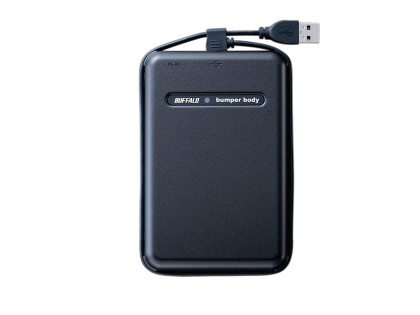Buffalo hits 500GB heights with mini-drive

Buffalo Technology has increased the capacity of its small-format hard disk drives with the announcement on Thursday of a 500GB drive, compact enough to fit in your pocket.
The latest MiniStation TurboUSB drive follows the company's preferred format of 2.5-inch, but has an increased capacity of 500GB with an option of 400GB. The drive uses a standard USB 1.1 and 2.0 connection for linking with a PC and is available immediately through most retail outlets. Amazon.co.uk is advertising the 500GB drive for £207 and the 400GB option for £155.
Disk drives continue to stuff bigger capacities into smaller and smaller packages. Earlier this month, BitMicro announced a 1.6TB drive in a small format, but it was a larger 3.5in drive than the one offered by Buffalo.
Although aimed at the consumer market, the MiniStation is bound to find users in commercial areas and government. Portable drives have become increasingly popular for organisations who wish to allow employees to work at home or at different sites as needed.
However, allowing the employee to "take home the office" on a portable disk drive can be a dangerous option, as shown by the recent spate of high-profile data losses. The Buffalo drive does have security software with encryption software for Windows, the company says.
Buffalo advertises the drive as shock-proof. It is compatible with all Windows systems (2000, XP and Vista) and all Mac OS X, including Leopard, the company says in a statement. It includes a wraparound cable for easy storage, a toughened outer casing with "shock-absorbent internal design" and Memeo AutoBackup Software for backup options, including regular system backup, scheduled backup and password protection.

The Buffalo latest MiniStation TurboUSB drive will accommodate 500GB in a standard unit that should go anywhere, the company says